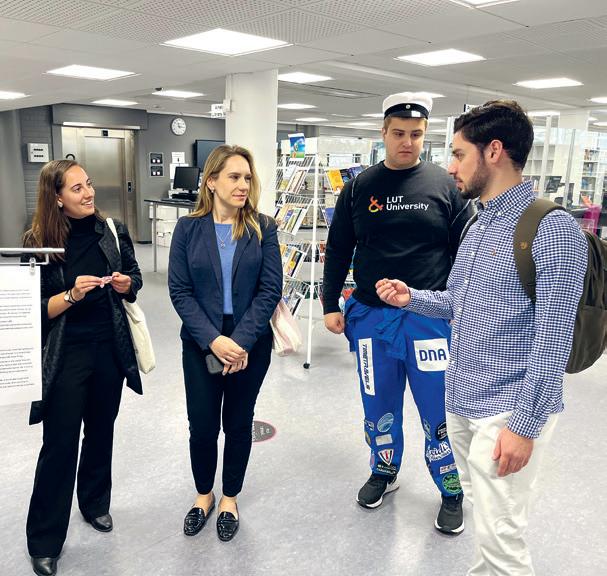
1 minute read
Managing Long-Term and Equitable Reassignment of Climate-Driven Refugees
According to the United Nations, 89.3 million people were displaced in 2021 due to conflicts and fleeing persecution, often over short distances. However, a much larger crisis is looming due to the effects of climate change. As many as 1 billion climate refugees will be on the move by 2050 according to the UN. Successful scenarios of global warming appear to be unlikely based on current trends, therefore planning for more dire scenarios is vital.
The Fulbright Finland Foundation’s Seeking Solutions for Global Challenges award allows studying the intersection of migration and climate change, and this award has enabled my team from the University of Oklahoma to join forces with Aalto University in taking a systems engineering approach to think about this problem of global importance.
In particular, we are studying how to plan for such a climate-driven displacement, which has some interesting characteristics from a modeling perspective.
These characteristics include decades-long planning horizons, dynamics and uncertainty in estimates of climate refugee demand and host location capacity, multiple decision-makers with varying resource levels, and considerations for well-being and dignity for those in transit, among others.
Beginning of a Long-Term Collaboration
During my time at Aalto University working with an internationally recognized researcher in risk and decision analysis, Professor Ahti Salo, we have developed an initial model to optimize how to plan for resettling individuals from heterogeneous populations while capturing some of these unique characteristics. This project is driven by doctoral candidate Buket Cilali with the support of Professor Andrés González, both of whom, along with me, are in the School of Industrial and Systems Engineering at the University of Oklahoma.
My five-month stay in Finland, however fruitful on its own, is just the beginning of a longterm collaboration and reciprocal visits between Norman, Oklahoma and Espoo, Finland. We have plans for future work for decision-making for climate-driven resettlement, including new methods to model long-term and exogenous uncertainty and more effectively addressing the dynamics of such a decision problem. And we intend to explore other important impact applications in modeling the adverse effects of disinformation on decision problems and other issues dealing with critical infrastructure protection.
I don’t have enough superlatives to describe my experience in Finland. From my collaboration with Prof. Salo and others at Aalto University, to my engagement with Fulbright Finland staff and other Fulbrighters, to my interactions with the people, nature, institutions, and traditions of Finland, my time in Helsinki, Espoo, and greater Finland has been incredible. I recommend applying to the Seeking Solutions to Global Challenges Program and Fulbright Finland only to those interested in a life-changing (and hopefully life-long) experience.
Kash Barker
2022-23 Seeking Solutions for Global Challenges Award
Aalto University www.fulbright.fi/seekingsolutions-global-challengesaward








